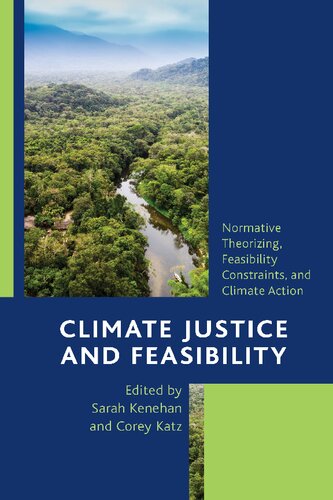

Most ebook files are in PDF format, so you can easily read them using various software such as Foxit Reader or directly on the Google Chrome browser.
Some ebook files are released by publishers in other formats such as .awz, .mobi, .epub, .fb2, etc. You may need to install specific software to read these formats on mobile/PC, such as Calibre.
Please read the tutorial at this link: https://ebookbell.com/faq
We offer FREE conversion to the popular formats you request; however, this may take some time. Therefore, right after payment, please email us, and we will try to provide the service as quickly as possible.
For some exceptional file formats or broken links (if any), please refrain from opening any disputes. Instead, email us first, and we will try to assist within a maximum of 6 hours.
EbookBell Team

5.0
60 reviewsThis collection helps bridge the divide between the work of normative theorists and climate action (or inaction). In this volume, contributors reflect on how we should understand the relationship between theorizing about climate justice, the principles of justice that result, and feasibility constraints on climate action. Some explore the role of theorists or the usefulness of their theories for guiding policymaking and action on climate change, while others discuss concerns with who is establishing what the feasibility constraints are and how they are doing so. Others identify and discuss psychological feasibility constraints on just climate action, or draw important parallels and distinctions between the feasibility constraints that were tackled in order to address the COVID-19 pandemic and those that need to be tackled in order to respond to global climate change.
The international and interdisciplinary contributors offer a range of approaches and frameworks, to re-think the ways that concerns of justice should be considered on the policy level, speaking to students, research scholars, activists, and policymakers.